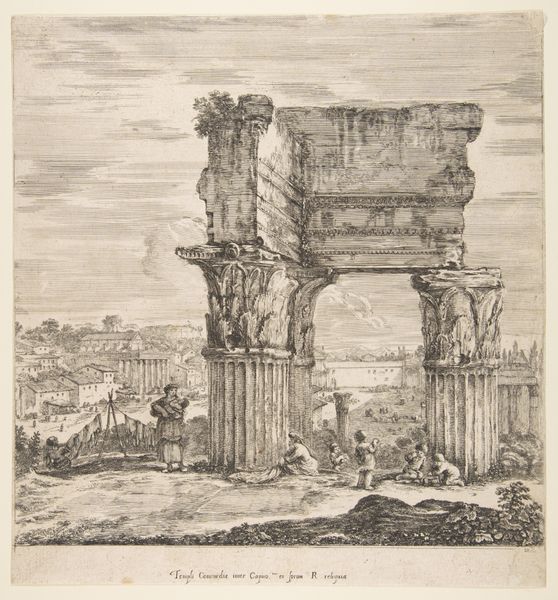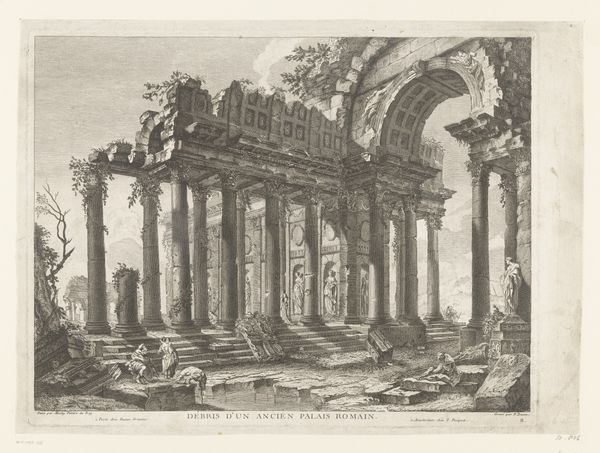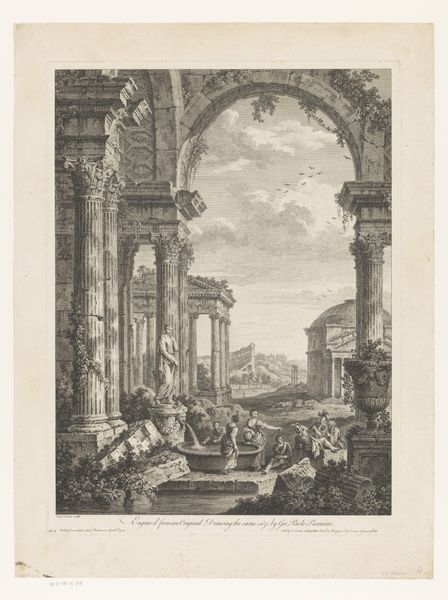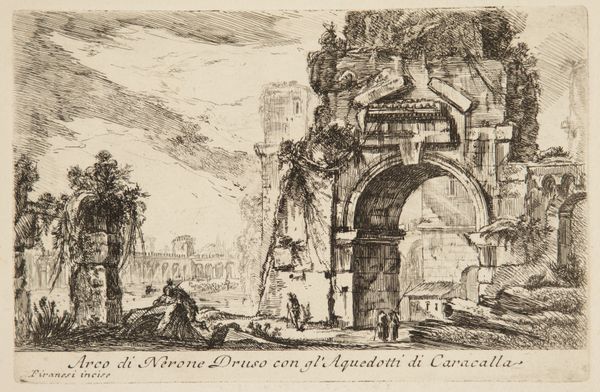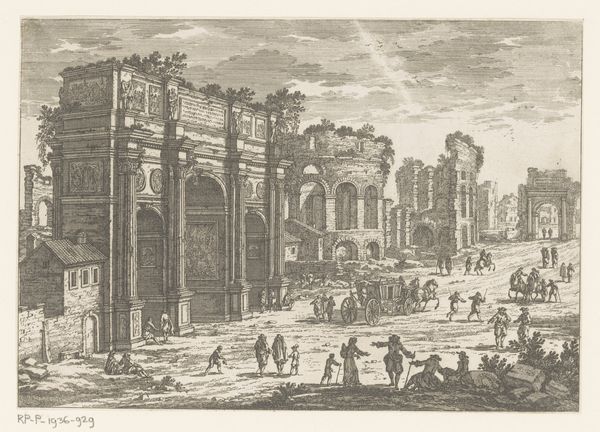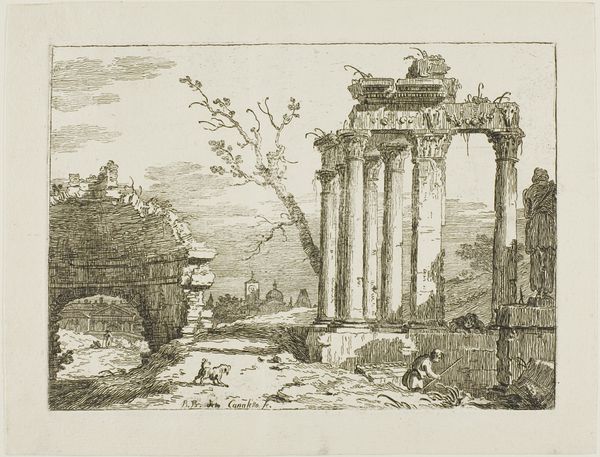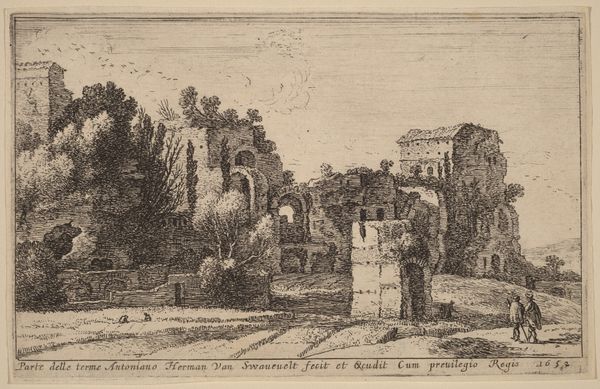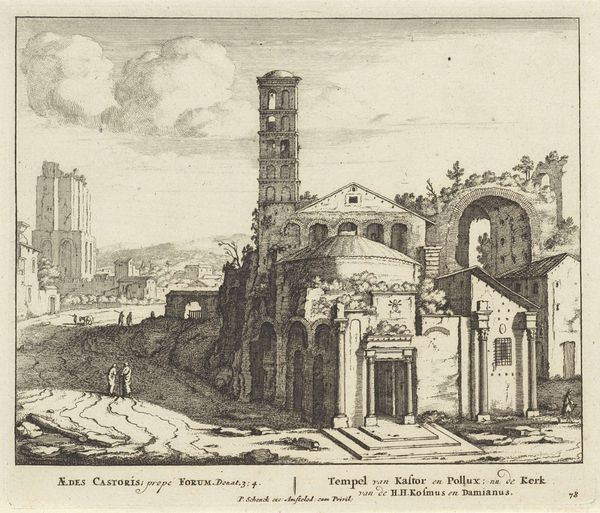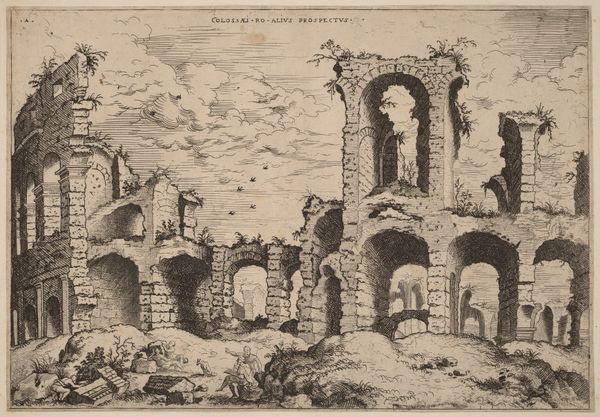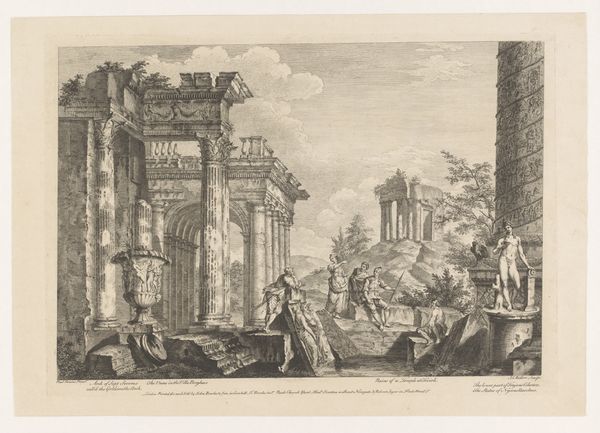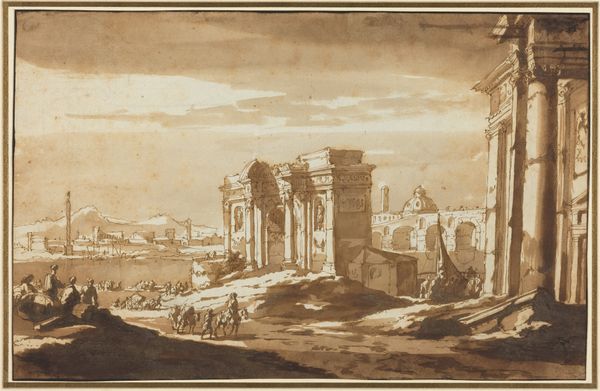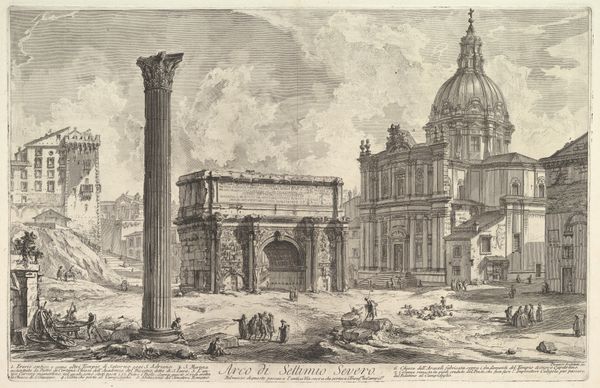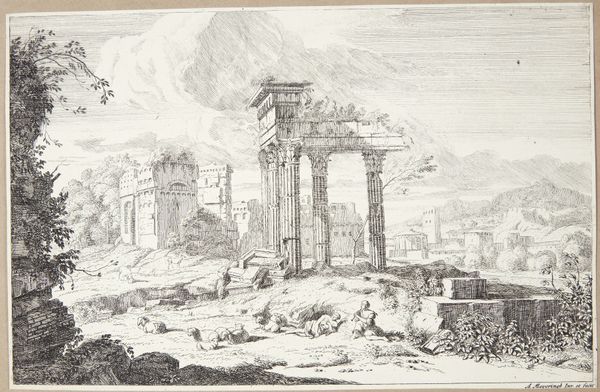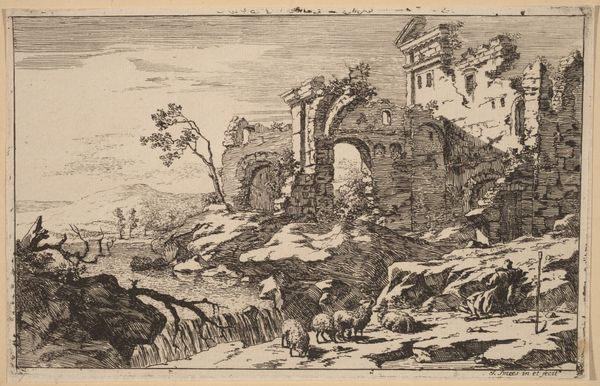
Plate 24: Arch of Pola in Istria near the Gate (Arco di Pola in Istria vicino alla Porta) 1745 - 1755
0:00
0:00
drawing, tempera, print, etching
#
pen and ink
#
drawing
#
tempera
# print
#
etching
#
landscape
#
romanesque
#
ancient-mediterranean
Dimensions: Plate: 5 × 10 1/4 in. (12.7 × 26.1 cm) Sheet: 12 1/2 × 18 11/16 in. (31.7 × 47.5 cm)
Copyright: Public Domain
Giovanni Battista Piranesi made this etching of the Arch of Pola in Istria near the Gate. The image captures a real Roman monument, but one located outside of Rome. In Piranesi’s time, this was Venetian territory, and the artist was interested in how Roman power extended across geographical space. Note how Piranesi pictures the scene: in ruins, overgrown, and populated by a few, seemingly common people. What does it mean for the symbolic authority of Rome, and for Roman institutions, if the arch is in disrepair? Perhaps that the power of Rome is fading, or being replaced? By consulting historical maps, and Venetian administrative documents from the period, we can investigate the relationship between the politics of the Venetian Republic, the history of the Roman Empire, and the public role of art. Piranesi’s etching reminds us that art and architecture are always embedded in social and institutional contexts.
Comments
No comments
Be the first to comment and join the conversation on the ultimate creative platform.
